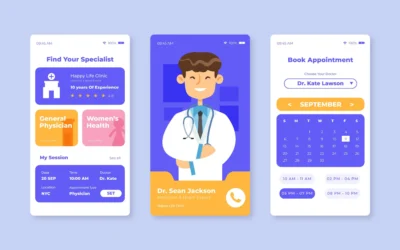In today’s digital age, the importance of a mobile-friendly website cannot be overstated, especially for medical companies. As technology continues to advance at a rapid pace, the need for responsive design and mobile-optimized websites has become crucial for businesses across all industries. With the projected rise of mobile internet usage and the prevalence of smartphones, the significance of having a mobile-friendly medical website will only continue to grow in the coming years.
The Year 2024 and Beyond: The Dominance of Mobile Internet Usage
By the year 2024, it is estimated that mobile internet usage will surpass traditional desktop usage. This means that an increasing number of people will rely on their mobile devices to access the internet, including searching for medical services and information. With this shift in internet usage patterns, it is imperative for medical companies to adapt by ensuring that their websites are fully optimized for mobile responsiveness.
Enhanced User Experience and Accessibility
Mobile-friendly medical websites offer a plethora of benefits, with one of the most significant being a superior user experience. When patients are seeking medical services or information on their mobile devices, they expect a seamless browsing experience that allows them to easily navigate the site, access essential information, and make inquiries or appointments with ease.
Additionally, a mobile-friendly website contributes to enhanced accessibility, enabling individuals to access vital healthcare information on the go. This accessibility is particularly crucial for medical companies, as it ensures that potential patients can easily find the information they need, regardless of their location or the device they are using.

The Intersection of Technology and Healthcare
As technology continues to transform the healthcare industry, the significance of mobile-friendly websites for medical companies cannot be overlooked. By leveraging responsive design and prioritizing mobile responsiveness, medical companies can effectively bridge the gap between technology and healthcare, ultimately enhancing patient engagement, accessibility, and the overall delivery of medical services.
In conclusion, the need for mobile-friendly medical websites is increasingly vital in a digital landscape where mobile internet usage is predicted to surpass traditional desktop usage. By embracing responsive design, website optimization, and mobile responsiveness, medical companies can significantly enhance user experience, accessibility, and their competitive position in the industry. In the years ahead, the adoption of mobile-friendly websites will undoubtedly be instrumental in shaping the success and online presence of medical companies in the technology-driven era of 2024 and beyond.














